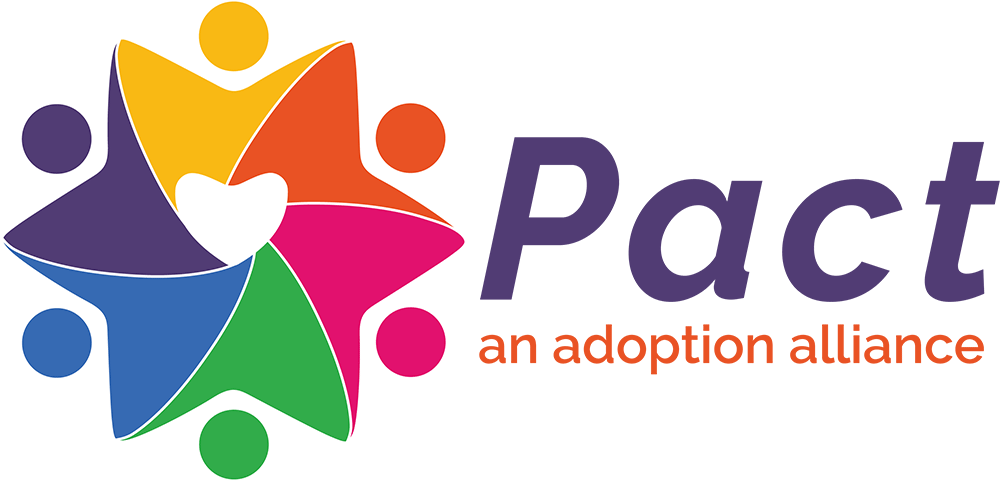Book Review:
I Would Meet You Anywhere: A Memoir
by Susan Kiyo Ito
Reviewed by Pact Staff
2024
Listening to adoptees is the best way to learn about the experience of being adopted. In her compelling memoir, Susan Ito reminds us that adoption is indeed a lifelong journey, full of twists and turns. Even now that she is a grandmother, and has lost many of her elders, she is not “finished” being adopted. While I Would Meet You Anywhere (Mad Creek Books, The Ohio State University Press, 2023) is one woman’s story, it is also, on a more universal level, an immersive account of the unending complexities and challenges of the adoption experience.
Ito was born in 1959, when closed adoptions were the norm. Adopted by a Japanese-American couple in New Jersey, she (and they) knew only that her birth mother was Japanese-American and her birth father European-American. Her parents called her “hanbun-hanbun,” half-and-half. While her parents were delighted to conclude their long wait for an Asian baby to adopt, Ito grew up feeling that she was not “Japanese enough” because of her biracial identity and racially ambiguous appearance. Being part of a “same-race” adoptive family did not shield her from anxiety around her racial and cultural identity.
The driving force in I Would Meet You Anywhere is Ito’s desire to find and know her birth parents. She is not motivated by dissatisfaction with her adoptive parents (whose characters and eccentricities she portrays in vivid, loving detail) but rather by a primal desire to understand the mysterious circumstances of her birth and placement, and to connect with the people who created her, her biological lineage.
Ito is a skillful writer who has performed sections of this story as a one-woman show; at times her hunt for her origins reads like a suspenseful thriller. As a college student, with help from adoptee organizations, compassionate friends, and some amazing feats of undercover sleuthing, she manages to track down and contact her birth mother.
For the rest of the book, Ito and her birth mother engage in an elaborate dance of connection and disconnection, as her first mother wavers between feelings of anger, shame, and love. Ito treasures their moments of intimacy, but is repeatedly wounded by her mother’s refusal to publicly acknowledge their relationship—or reveal the identity of Ito’s birth father. Ito is charmed one moment, harmed the next.
Ito brings readers along on a journey that movingly illustrates many common adoptee experiences. As a child she imagines that all families are formed the same way as hers. Later she is excited to discover that a classmate of hers is adopted as well, and fantasizes about how their lives might be intertwined. By middle school she is surreptitiously reading books about adoption and wondering how she can learn more about her origins without hurting her adoptive parents. Once she leaves home for college, she intensifies her self-education about adoption, connects with other adoptees, and begins searching in earnest. After making contact with her birth mother, she must navigate layers of excitement, guilt, and confusion as she attempts to nurture this new relationship while maintaining her deep bond with her adoptive parents.
She describes her adoptive family meeting her birth mother for this first time over lunch at a Manhattan restaurant:
“[My grandmother] clawed my sleeve with her arthritic hand. ‘Your mother,’ she muttered….‘Very pretty lady.’
My mother! A flush rolled over my skin. I looked across the table. My mother—Kiku—was drumming her nails on the table. I didn’t respond to my grandmother. But inside I was screaming, ‘Don’t call her that! She’s not. Or she was—but she isn’t anymore.’
I was confused. Because hadn’t I chortled those same words to myself? My mother! My mother! Hadn’t I been swooning over her too?”
The scene unfurls in a pitch-perfect mix of social awkwardness and roiling, conflicting emotions.
Without disrupting the momentum of her first-person narrative, Ito artfully weaves large social issues into her personal story: the ripple effect of Japanese-American incarceration and displacement during and after World War II; the struggle for reproductive choice; the fight for open adoption records; the impact of racial isolation; the mental health challenges that many adoptees experience; and the power of finding community and a sense of belonging.
Full disclosure: Susan Ito was the founding director of Pact Family Camp, a position she held for seven years starting in 2005. She describes how fulfilling it was for her not only to be surrounded by young adoptees of color and their families, but to spend time with the other adult adoptees of color who participated as guest speakers or youth counselors, of whom she writes: “These were my people.”
Ito has led an eventful life, full of different professional identities, passion projects, and creative pursuits. Throughout it all, adoption has remained a constant presence in her emotional landscape. In the latter part of her memoir, she writes of her daughter’s pregnancy:
“Seeing my daughter’s basketball-sized orb up close recalled [my birth mother’s] pregnancy with me: how she had managed to carry me without anyone noticing, how she had hidden me within the confines of a rigid girdle. The unbearable loneliness of her secret pregnancy haunted me.”
Over the course of three decades, Susan Ito has struggled to find a way to tell her own story. The result is a carefully crafted memoir that captures the complications of real life—including relationships that evolve and change, come in and out of focus, erupt into conflict, heal or end. Highly recommended.
